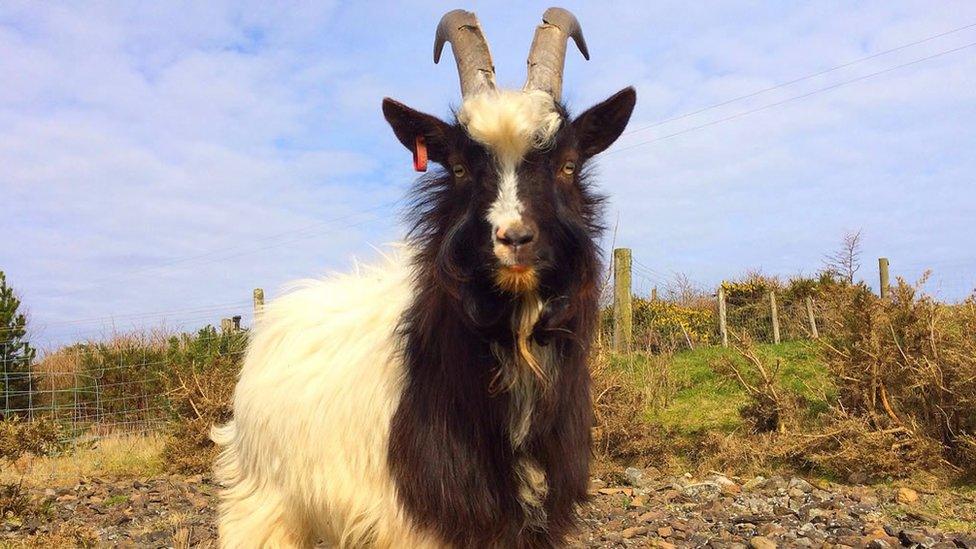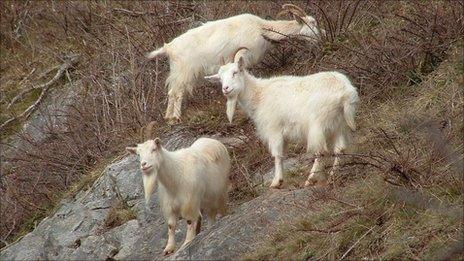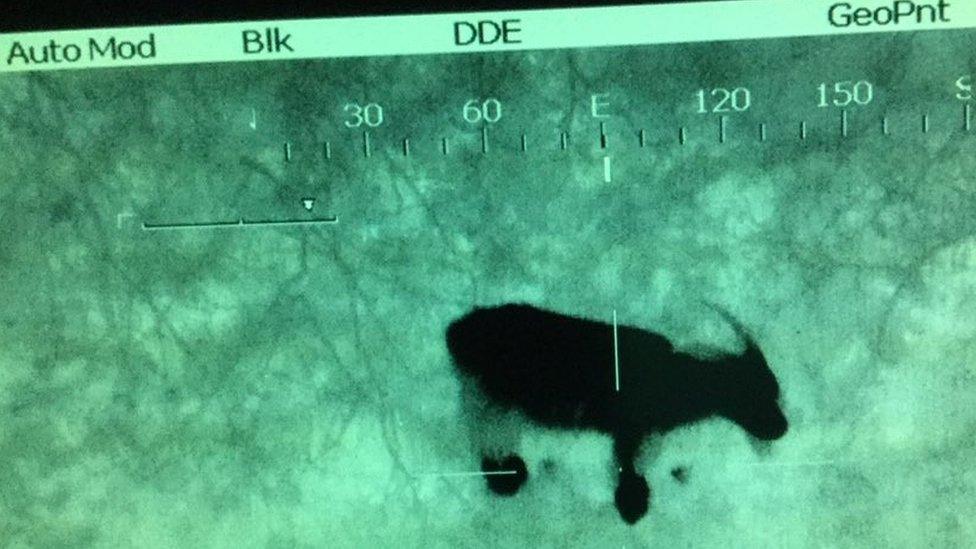New goats on the Avon gorge help protect rare plants
- Published

Bagot goats have a distinctive look
Four more goats have been introduced to Avon Gorge to help control scrub and allow native plants to thrive.
The area, which has become known as "goat gully", is home to rare plant species including the Bristol onion and Bristol rock cress.
The goats feed on woody plants, allowing the rare native species to flourish on the limestone rock.
Goats were first introduced in 2011 and the new animals bring the total number of goats in the area back up to six.
Six wild Kashmiri goats were introduced into the enclosure on a steep section of the gorge by Sea Walls a decade ago.
However, two of the original goats died of old age and two more were chased off the cliffs by dogs.
'Two mouths'
Bristol City Council had been planning to restock the herd but its plans were delayed by the pandemic.
Instead of brining in more Kashmiri goats, the council's grounds supervisor, Ben Skuse sourced four Bagot goats from Bristol charity, Street Goat.
Mr Skuse said: "The amount of browsing and scrub control in the gully has been somewhat lacking when we've been down to two mouths, rather than six.
"I'm very glad that we've been able to source some new animals," Mr Skuse said. "They're quite a bit younger than our current goats, which is what we wanted."
Bagot goats are one of Britain's oldest breeds. They are black and white and have long curved horns.
The Avon Gorge runs through a limestone ridge and is the only place in the world where the rare Bristol onion and Bristol rock cress grow.
The area is considered one of the UK's top locations for rare plants with more than 30 scarce species growing there.
Its sheltered nature has also allowed some unique tree species to develop.

Follow BBC West on Facebook, external, Twitter, external and Instagram, external. Send your story ideas to: bristol@bbc.co.uk , external
Related topics
- Published28 June 2011

- Published25 January 2016
